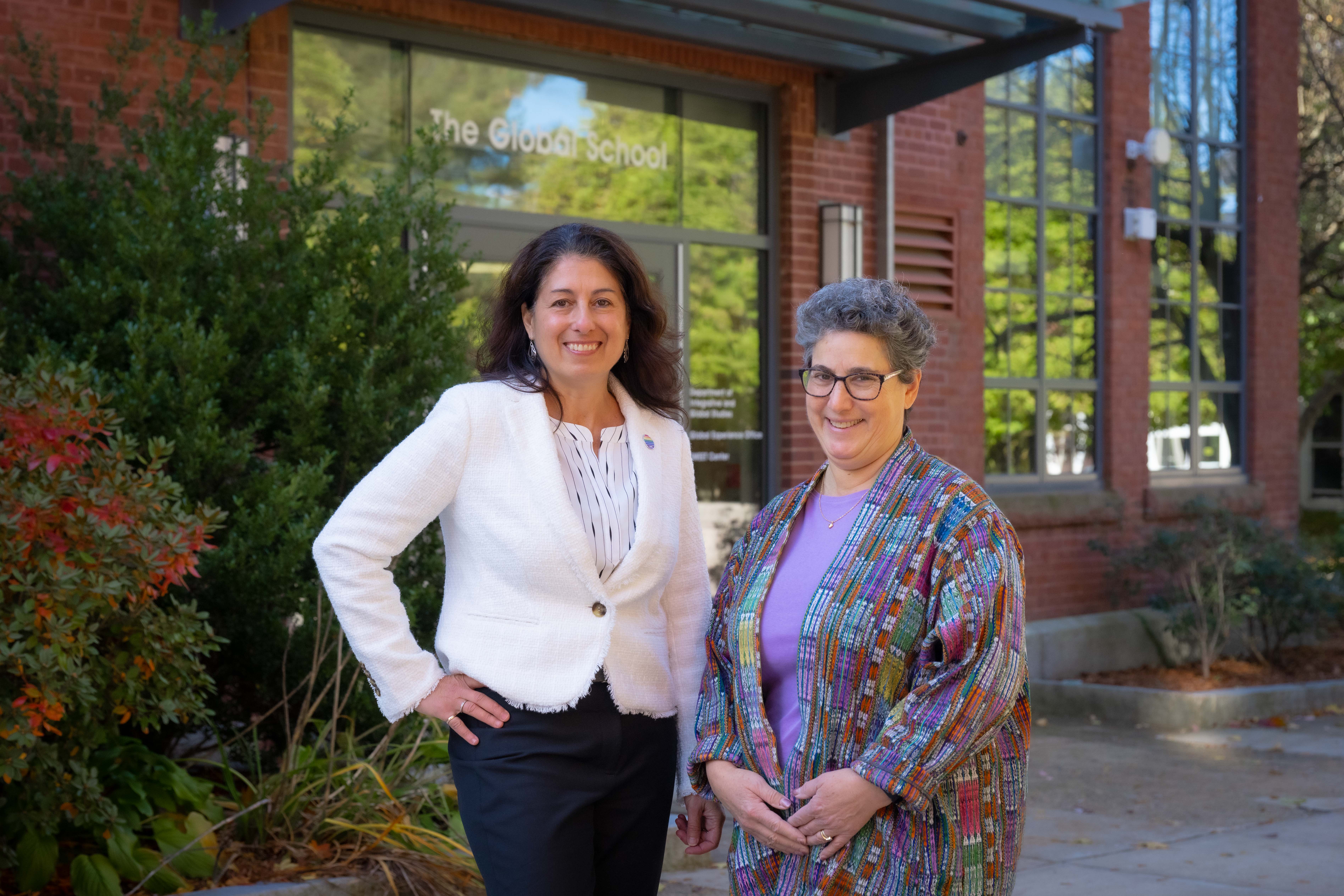A paper co-authored by three faculty members at Worcester Polytechnic Institute (WPI) has received the Best Paper Award for 2012 from the journal Academy of Management Learning & Education (AMLE). The award was presented recently at the Academy of Management annual meeting in Orlando, Fla. AMLE, the top-ranked journal in management education, is ranked 5th out of 216 journals that focus on education and educational research.
The Best Paper Award recognizes an article that best represents the mission of AMLE, advances the state of pedagogical scholarship in management education, and directs attention toward critical challenges and issues facing the field.
The winning paper, "Teaching Social Entrepreneurship and Innovation from the Perspective of Place and Place Making," was co-authored by Michael Elmes, professor in WPI’s School of Business, Scott Jiusto, associate professor in the Interdisciplinary and Global Studies Division (IGSD) and director of WPI’s Cape Town Project Centre, and Robert Hersh, adjunct teaching professor in the IGSD, along with Gail Whiteman of Erasmus University and Greig Tor Guthey of California State University San Marcos.
The article discusses the importance and advantages of employing a place-based approach to learning when teaching social entrepreneurship. A place-based approach emphasizes a sense of place―specifically, the complexities of the history, political dynamics, networks of people, ecosystems, and human interactions that define a community. "These all have a bearing on any social enterprise that is established to address human needs and add social value," Elmes said.
Traditional methods of teaching social entrepreneurship, which rely primarily on textbook concepts of environment and community, do not instill a full understanding of social context. A place-based approach, on the other hand, offers a more complex, holistic, and nuanced view, the paper explains. The authors support this contention through the use of a case study that spotlights a water and sanitation project carried out at the Cape Town Project Centre.
Established in 2007, the project center is part of WPI’s Global Perspectives Program, which offers opportunities for WPI undergraduates to complete one of their required projects in nearly three dozen locations around the world. At the Cape Town center, students work on the Interactive Qualifying Project, through which they address real-world problems and issues that lie at the intersection of science, technology, society, and human needs. In Cape Town, projects typically focus on sustainable community development in lower-income areas, including “shanty towns,” where people live in shacks and lack basic services. Students have worked with local community members to solve problems in such areas as sustainable water and sanitation, energy, early childhood development, and micro-business.
"As an educational enterprise," the paper notes, "[the project center] operates in the experiential, or service-learning space, so that students learn by facilitating social innovation and entrepreneurship through intensive, short-term projects sponsored by local governmental, nongovernmental, and community-based organizations."
The paper chronicles the journey of a student team that worked with the municipality of Stellenbosch and the NGO Shack Dweller International to help plan and develop sustainable, multi-stakeholder, community-based approaches to water and sanitation services in Langrug, an informal settlement. From intensive preparations on campus, to an initial orientation to living conditions and the state of water and sanitation services in the settlement, to field research, to the formulation of solutions (which included improvements in the aesthetics and functioning of existing facilities, including painting toilets, building gray water channels, and developing an innovative water tap), the importance of place was continually emphasized throughout the project experience.
As a result of this place-based approach to education, students at the Cape Town center not only develop solutions that respond more thoughtfully to the needs of the community, but they often acquire a new perspective on their future work as scientists and engineer, the paper concludes. "Most students who have participated in the project program have been deeply moved by what they experienced and learned and acquired a deeper understanding of the possibilities and challenges for creating directed social change," the authors report.
“We think about our work as an experiment in shared-action learning," Jiusto said. "How can everyone involved learn from one another by seeking to change ourselves and, at least in a small way, the places that we come to care about."
Elmes said being recognized by ALME is a testament to the value of WPI’s real-world, project-based learning philosophy. “It says that we are doing something important, unique, and quite sophisticated in how we prepare our students, what experiences we provide for them, and how advisors guide them through the global project program.”
Founded in 1936, the 15,000-member Academy of Management publishes AMLE, an academic journal whose stated mission is to advance the knowledge and practice of management learning and education. Alison Konrad, chair of the award selection committee, said the paper was selected for the Best Paper Award because it represents the culmination of a significant amount work with substantial impact, on both the communities involved and on education in the field of management.
"The community service activity described in the paper is obviously deeply engaging to students, who learn a substantial amount about working in different cultures, contributing to society, and about their personal strengths and development needs," said Konrad, who is also a professor of organizational behavior at Ivey Business School at Western University in Ontario, Canada.
Overall, she said, the judges felt that the authors successfully advanced the field of social entrepreneurship with their four-frame model of place-based learning. She added that the students’ learning experience as reported by the authors showed significant growth in knowledge regarding how to serve communities in other cultures.





